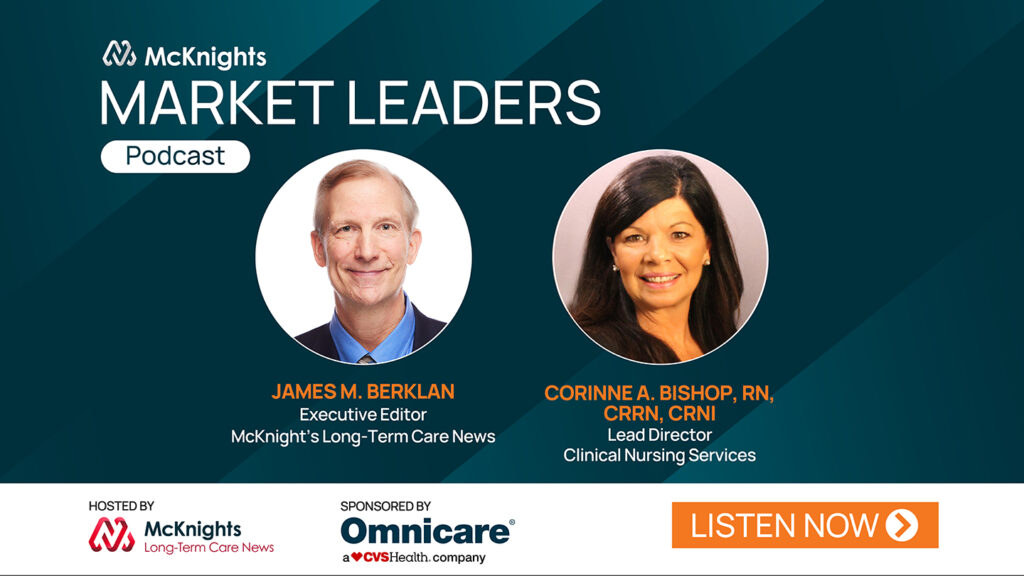
Doesn’t it seem like our residents with hearing loss escalate their dementia risk? Or is it that our residents living with dementia lose their hearing? Hearing loss and dementia seem to go hand-in-hand.
I’ve always assumed that hearing difficulties weren’t directly related to the onset of dementia, but rather the loss of hearing decreases the ability to engage with others, causes conscious or unconscious withdrawal, and diminishes cognition by diminishing stimulation.
In the old days, some were reluctant to get hearing aids because of the stigma attached, didn’t like the look, or because the background noise was intolerable. Old-timey hearing aids magnified all sound, including the dishwasher and the overhead fan, not just the dinner conversation. Imagine the cacophony. Only one in seven Americans with hearing loss use hearing aids because “my hearing’s not that bad.”
But they may be risking their mental acuity, and now there’s a way to help.
Hearing loss significantly affects the quality of life for tens of millions of adults in the United States and contributes to high healthcare costs. Untreated hearing loss can lead to isolation, and it has been associated with serious conditions such as depression, anxiety, low self-esteem, dementia, reduced mobility and falls. Yet only one in four adults who could benefit from hearing aids has ever used them.
A 2020 Lancet Commission report shows that hearing loss may directly cause up to 8% of all dementias, but not in the way I have always assumed, which is that hearing loss causes behavioral changes. Hearing loss also accelerates brain atrophy. How can that be? When you’re walking or moving around, your brain picks up subtle cues about balance and your environment through your ears. Hearing loss mutes those signals. As a result, your brain loses those connections and starts to shrink.
Hearing loss makes the brain work harder to compensate for the missing pieces. Pushing the brain to fill those gaps decreases its ability to function in normal healthy ways, resulting in illness and even falls. People with hearing loss have a 47% higher rate of hospitalization, which then results in higher healthcare costs.
With the new Over-the-Counter hearing aids (OTC HA), the ability to reduce and mitigate hearing-related cognitive changes is in the grasp of the consumer. Like prescription hearing aids, OTC hearing aids are regulated as medical devices by the FDA but don’t require a visit to the audiologist (keeping insurance costs down) and are available in stores and online. You fit them yourself, and you can control and adjust them in ways that prescription hearing aids can’t.
How do you know if you’re ready for the OTC HA?
- Does speech or other sounds seem muffled?
- Do you have trouble hearing in noisy areas or when you can’t see who’s talking?
- Do you ask others to speak more slowly or louder?
- Do others ask you to turn down the TV or music?
Hearing aids don’t just improve hearing. There is researched evidence that shows that improving hearing can mitigate dementia, improve depression and decrease healthcare costs. Moving the ability to interact, engage, and preserve one’s health directly into the hands of the consumer improves outcomes and provides one more avenue for self-directed, patient-centered care.
Jean Wendland Porter, PT, CCI, WCC, CKTP, CDP, TWD, is the regional director of therapy operations at Diversified Health Partners in Ohio.
The opinions expressed in McKnight’s Long-Term Care News guest submissions are the author’s and are not necessarily those of McKnight’s Long-Term Care News or its editors.




